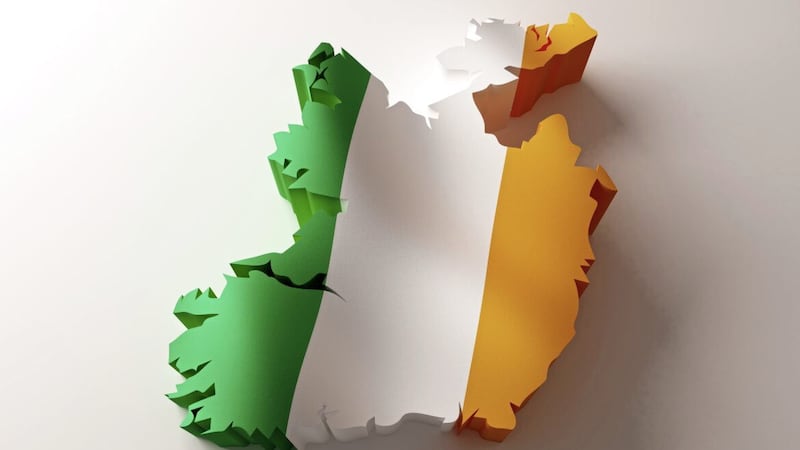What is it to be Irish? If reports from Listowel are to be believed, you don’t qualify if you come from north of the border.
Clearly something has gone awry with the Republic’s geography curriculum. Though come to think of it, I have seen more than a few maps of Ireland with a missing chunk where the north-east of the country used to be; as many perhaps – if not more – than those showing the six counties as a wee island off the coast of Scotland.
Maps are important. They are political in the extreme. And over the past 100 years they have been used to reinforce the very political reality of a country torn apart.
As I have noted here before, King George V’s address to the first Northern Ireland parliament gives an interesting insight into how the people of this part of the island were seen when partition reared its ugly head.
Addressing MPs and senators, he talks repeatedly of Irish men and women, and says: “I have therefore come in person, as the Head of the Empire, to inaugurate this Parliament on Irish soil.”
The phrase “on Irish soil” is worth repeating.
He called for “the Irish people, North and South” to work together “in common love for Ireland upon the sure foundations of mutual justice and respect".
Albeit within the context of an empire then showing signs of its eventual destruction, there was no mention of British identity. The king knew it, and everyone in the room knew it, Belfast was an Irish city and its citizens as Irish as any born on the island.
Over the course of the coming century, through a mixture of mal-intent and neglect, partition was cemented into place.
Readers of this paper will need no lessons from me on the unsubtle ways nationalists were made to feel like second class citizens in their own land. But I wonder if we have been more than a little naïve in assuming that our brothers and sisters south of the border continued to view us as cut from the same stock.
Certainly, if some of the denizens of Listowel are to be believed, northerners have no right to consider themselves Irish; neither, it seems, are Irish men and women whose surnames are inconveniently missing an O or a Mc. De Valera would be turning in his grave.
There are few things more fun (but less futile) than a literary bun-fight but it seems that the late lamented Nobel laureate Seamus Heaney wouldn’t be green enough for the clique in Listowel who see themselves as gatekeepers to the Irish literary annals.
In a nutshell, the town’s writers’ festival was told it needed to get its act together by the Irish arts council. The appointment of Belfast-man Stephen Connolly as curator, however, didn’t go down well with the old hands.
As reported in The Irish Post, one asked him: “Could they not have asked anyone Irish to do it?” He was accused of ruining the festival by inviting too many northerners to take part; and then had his contract terminated.
Being benign, you might suspect knowledge of the Irish constitution has bypassed Listowel. For the benefit of any readers there, it says: “It is the entitlement and birthright of every person born in the island of Ireland, which includes its islands and seas, to be part of the Irish Nation.”
Sadly, Listowel’s partitionist attitude is not just shared by a reactionary few in the farthest reaches of Co Kerry. It is knit into the fabric of a country which, while clinging to the rhetoric of an Ireland united, was often content to put its own interests ahead of the those of the nation as a whole.
Irishness is the birthright of everyone born on this island, but it also belongs to those who have made this place their own; who have built their lives here and enriched it. Irishness is a sense of being which embraces the world and its disaporas, and which welcomes those – who like the Irish themselves – know what it means to be marginalised and oppressed.
And the Irish literary tradition is to be found not only in those who worked within a nationalist construct; but those who opened themselves to the world and all its possibilities: writers like Beckett and Kavanagh and Heaney himself.
Referring to Ireland, Joyce said it was like a sow eating its own farrow. That sow is living still in Listowel and should be put down.








